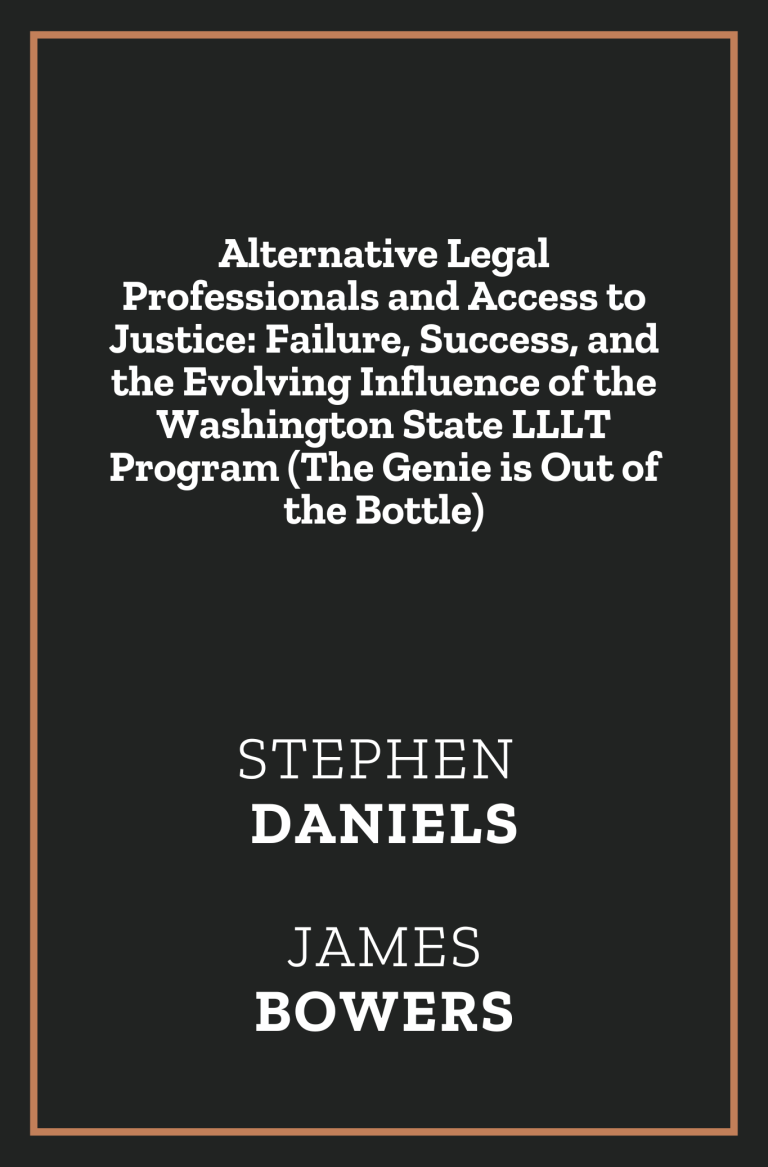From DePaul Law Review
Research dating back to the 1970s documents a significant shortfall in the availability of civil legal services for many people. In response, academic commentators, bar groups, and those working in and around state courts are giving increasing attention to a range of access-enhancing innovations, many of which share a greater role for non-lawyers. “Alternative legal professionals’” (ALPs) are licensed or regulated nonlawyers authorized to perform substantive law-related work without an attorney’s supervision. They are the most controversial and the most important because they could disrupt – by way of an innovation – the way legal services are delivered. The growth of these legal professionals reflects, in essence, a rethinking of legal services and the way in which they are delivered.
This article focuses on the Washington State Supreme Court’s creation of a new mid-level professional called a ‘limited licensed legal technician’ (LLLT): a formally trained, licensed, and regulated professional, authorized to provide a narrowly prescribed set of legal services in without attorney supervision, specifically in family law. The authors consider the significance of this program and its potential to spread to other states focusing on efforts in the four corners states — Arizona, Colorado, New Mexico, and Utah.

